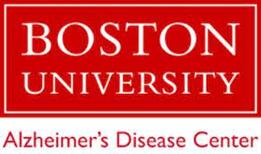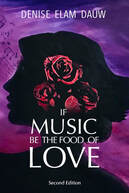One of Dr. Budson's first points is how If Music Be the Food of Love could help readers experience an emotional catharsis, whether currently or previously coping with loss of a loved one to Alzheimer's. By pulling readers so deeply into the character's lives, one might grasp what the disease can unravel over time. Non-fiction resources abound for caregivers, researchers, and those curious about the disease, but not many (historical) fictions exist to provide a unique view into this world.
After describing the hospital visit with my grandmother that started this journey over 10 years ago, Dr. Budson connected the story to neurologists as it pertains to music and memory. Singing music from my grandma's youth triggered various parts of the brain, and in some ways, the episodic and procedural memory pathways remained accessible through specific repertoire. The fact she was also a musician helped, but repertoire choice is critical for creating meaningful connections.
The conversation then validated a call for voice and choice in school music classrooms. If we want students to walk away with lifelong memories accessible until the end of natural life, then providing them with ownership to select said learned repertoire is an obvious consideration. And, in the aftermath of a pandemic where some schools were forced to shut down music programs entirely, changes to ensure student voice or choice and alter teaching practices of director autonomy seems appropriate, if not necessary.
Weaving in and out of the excerpt readings, Dr. Budson highlighted that people afflicted with Alzheimer's can sometimes pass in social settings as normal for several minutes, but be void of reality. Like that of an iceberg, we aren't really seeing what is under the surface. Those with Alzheimer's can travel in and out of time, similar to the haze described within the novel's character text. The best advice is to keep your loved one at peace with familiarity and routine. Changing routines, settings, or people (caregivers) can bring unfortunate consequence of irritability and sundowning, which causes undue stress for caregivers. In addition, while it is challenging to be asked the same questions repeatedly, it is critical we do not correct or berate our loved one for doing so. This disease can strip away one's identity and we must remember they are not choosing this life change. Let us try to be grateful they are still engaging in conversation! That is something to be thankful for as the long days tick by.
While the human touch and being physically present is most helpful for keeping our loved ones engaged, we must never underestimate music's power to connect and heal. We were all forced into isolation during the pandemic, but none so severely than those in assisted living facilities around the world; therefore, access to music and technology became hyper critical for connecting with our loved ones. In previous blogs, creating a prescribed repertoire is discussed in depth for those living with dementia at various ages; however, we can ALL benefit from this process, whether numerous recorded CDs or playlists on an iPod. One never knows when music will be needed as a healer, or as a gateway to lucidity to excite or calm us throughout the day.
Wrapping up before questions, Dr. Budson described how the pandemic brought one positive change to both practical and entertainment arenas. Where one may not have been able to attend lectures or programs in person before, we now have zooming options and at-home concerts from artists who can entertain from the comforts of home via live streaming. As mentioned in the book talk, where there's a will, there's a way. Let us not forget the inherent human need to connect with others we felt during this pandemic, and the countless barriers that came crashing down when people wanted to make music together. Even a pandemic can't keep cultures from sharing music, whether across balconies or via computer across the globe.
My friends, THANK YOU for watching below. We hope you find our book talk intriguing, helpful, and that you will enjoy reading If Music Be the Food of Love at your leisure!
#ADRC #EndAlz #BostonUniversity #ADC #musicandmemory #booktalk #BostonCenterforMemory #neurologists #caregivers #dementia #musicians #music #musiceducators #AlzheimersDisease #StLouis #authors



 RSS Feed
RSS Feed